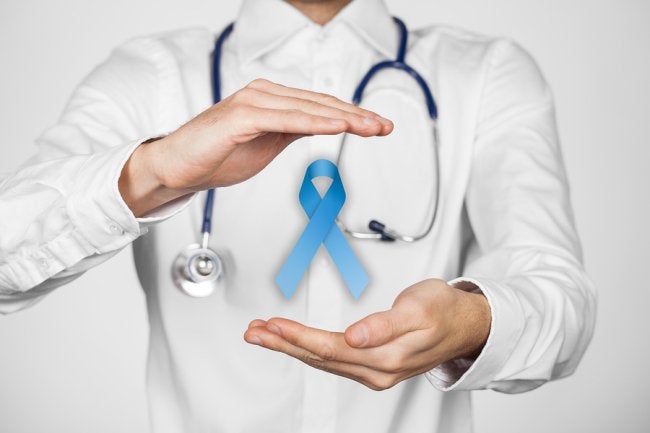-
What Is Noncoital Pain Disorder?

At Urology Associates’ WISH—Women’s Institute for Sexual Health—we diagnose and treat a wide range of disorders that interfere with intimate relationships. Up to 43 percent of women will experience some form of sexual dysfunction in their lives, from hypoactive sexual disorder, in which there is an absence of sexual desire, to dyspareunia, or pain during intercourse.
Noncoital pain disorder is similar to dyspareunia, except that it refers to genital pain that occurs during non-intercourse sexual stimulation. There can be several different causes of noncoital pain disorder, ranging from infection to anxiety about sexual relationships. For patients experiencing this kind of pain, providers will work to determine the root cause of the problem before determining the right treatment approach. Some potential treatments for noncoital pain disorder include anesthetic creams, tricyclic antidepressants, and therapy.
Pain does not have to be an obstacle for healthy sexual relationships for women. Make an appointment with a WISH physician at Urology Associates by calling (888) 329-7700. In addition to addressing sexual health issues for women, our urologists can also provide care for sexual health in Tennessee for man, including treatments for erectile dysfunction.
-
Understanding Kidney Cancer
Finding out that you have kidney cancer can be overwhelming. By working closely with your urologist on understanding your disease and developing a cancer treatment plan, you will feel more in control of your health and outlook. In this video, Dr. David Morris of Urology Associates in Tennessee explains the basics of kidney cancer.
Typically, kidney cancer is indicated by the presence of solid masses on the kidneys. It does not respond to chemotherapy and is usually surgically treated. If the cancer has spread, further treatment may be necessary.
If you are concerned about kidney cancer in Tennessee, make an appointment with one of our urologists today. We treat a range of issues, from urologic cancers to erectile dysfunction. To schedule a consultation, call Urology Associates at (888) 329-7700.
-
Tips for Talking to Your Doctor About Erectile Dysfunction

Erectile dysfunction can be a difficult issue for men to talk about, but in reality, it is an extremely common condition. Up to 5 percent of men over age 40 and 25 percent of men over age 65 experience this sexual health problem . The good news for men living with erectile dysfunction is that treatment is available as long as you consult with your doctor. Here are some tips for starting the conversation.
List Your Symptoms
Since erectile dysfunction can have many different causes, your doctor will pay close attention to the symptoms in order to make a diagnosis. Because it may be difficult to recall all of the important information your doctor needs, write down your symptoms before you go so you can report them accurately. Include details about times you experienced erectile dysfunction and your mood, eating and drinking habits, and overall health when incidences occur. It may help you to track your symptoms for a few weeks to identify any patterns.
Bring a List of Medications
Often, medications can be to blame for erectile dysfunction. Bring a list of all current medications and doses, including vitamins and over-the-counter medications, to your appointment. By reviewing this list, your urologist can determine if medications could be contributing to your symptoms and offer suggestions for alternative medicines that have a lower risk of side effects.
Be Honest and Direct
Try to dismiss any concerns you have about discussing erectile dysfunction with your doctor. Millions of men have the same conversation each year, and you won’t be the first to approach your doctor for help. Answer your doctor’s questions honestly and be direct about the questions you have. The more information you give your doctor, the better able he or she will be to provide effective treatment.
If you are experiencing erectile dysfunction in Tennessee, schedule a consultation with a urologist at Urology Associates for treatment by calling (888) 329-7700. Our doctors provide help for a wide range of sexual dysfunction issues for both men and women with cutting-edge treatments and compassionate care.
-
Breast Cancer Awareness: Get the Facts [INFOGRAPHIC]
October is Breast Cancer Awareness month, but women need to be vigilant about their breast health all year long. Although breast cancer is a significant risk—one in eight women will get it –early detection saves lives. A cornerstone of breast cancer detection is monthly breast self-exams. By checking your own breasts each month for lumps, you can increase your chances of getting diagnosed early if cancer does occur. If you’re not sure how to perform an exam, ask your doctor for advice. Learn more about breast cancer in this Infographic from Urology Associates, P.C . We provide sexual health and cancer treatment in Nashville, as well as care for a range of other conditions, including urinary tract infections, erectile dysfunction, and low libido. At your next appointment, ask your doctor about your breast cancer risk and steps you can take to protect your health. Please share this important information with all of the women in your life to help them take control of their own cancer risks.

-
Examining the Benefits of Provenge

Exciting advancements have been made in the field of cancer treatment in recent years. Among them is Provenge. You may already be familiar with chemotherapy and radiation therapy for the treatment of prostate cancer and other types of cancer. However, Provenge is different. It’s a type of immunotherapy, which works by harnessing the power of your body’s own immune system to fight advanced prostate cancer.
Provenge is clinically proven to help men with metastatic prostate cancer live longer. And unlike chemotherapy and radiation therapy, men using Provenge have a short course of treatment. One course of Provenge requires only six appointments within a month. Another significant benefit of Provenge is that most of the side effects are mild or moderate. They may include fever, chills, fatigue, and headache.
To find out if this type of cancer treatment is right for you, you can contact Urology Associates, P.C. at (888) 329-7700 and schedule a consultation with a urologist in Nashville. Our practice also offers sophisticated treatment options for erectile dysfunction, kidney stones, and incontinence.
-
Get the Facts About Xofigo
 Xofigo (radium-223 dichloride) is a type of cancer treatment that may be appropriate for some men with advanced prostate cancer. Xofigo is an injectable medication that works by binding with the minerals in the bones. This allows the drug to precisely target the delivery of radiation to tumors in the bones. If you’ve been undergoing treatment for prostate cancer, consider talking to a urologist about whether Xofigo could be right for you.
Xofigo (radium-223 dichloride) is a type of cancer treatment that may be appropriate for some men with advanced prostate cancer. Xofigo is an injectable medication that works by binding with the minerals in the bones. This allows the drug to precisely target the delivery of radiation to tumors in the bones. If you’ve been undergoing treatment for prostate cancer, consider talking to a urologist about whether Xofigo could be right for you. Evaluating Whether Xofigo is Right for You
Xofigo isn’t right for every patient with prostate cancer. However, you may be a candidate if you have metastatic castration-resistant cancer that has spread to your bones, but has not spread to other tissues. In other words, good candidates for Xofigo have prostate cancer that has demonstrated resistance to treatment with medical or surgical treatments that are intended to lower testosterone.
Receiving Xofigo Treatments
Xofigo is not available in pill form. It is administered as a slow intravenous injection into a vein at a urology clinic or similar facility. If your doctor recommends that you receive Xofigo, you can expect to go to the clinic once per month for a dosage. You may receive a maximum of six dosages. The total dosage and specific schedule your doctor recommends will depend on factors such as your general health and weight.
Caring for Your Wellness
During your cancer treatment, it’s important to follow your urologist’s instructions carefully. You’ll be informed of the side effects that you may experience and you’ll learn which symptoms warrant a call to the clinic. Because Xofigo is an internal form of radiation , it’s crucial that you exercise caution in keeping your body fluids from coming into contact with anyone else. Patients may also be advised to drink plenty of fluids each day, minimize the risk of infection and bleeding, and maintain strict bathroom hygiene.
Urology Associates, P.C. offers surgical and medical cancer treatment in Nashville, including Xofigo and Provenge for men with advanced prostate cancer. Our urology team is dedicated to providing compassionate, respectful care within a comfortable environment. If you’ve been diagnosed with prostate cancer, bladder cancer, erectile dysfunction, or similar conditions, you can give us a call at (888) 329-7700.
-
A Woman’s Guide to Hypoactive Sexual Desire Disorder

It’s perfectly normal for women and men to experience occasional declines in sexual desire. Sometimes, this is due to a physical issue, such as a UTI, or it may have psychological roots. However, some women who consistently have little interest in sex may have female hypoactive sexual desire disorder (HSDD). If you believe that you may have HSDD, you can consult a urologist regarding ways of improving your sexual health .
Diagnostic Criteria
First, the urologist will ask you about your symptoms. Women with HSDD have little or no interest in sexual activity, including self-stimulation. However, HSDD is only diagnosed when the individual is also distressed by the lack of sexual desire. In other words, a patient could have a very low sex drive, but not have sexual dysfunction as long as she isn’t bothered by her low libido. There is no specific test that can confirm a diagnosis of HSDD. However, the urologist may perform exams and tests to rule out possible physical causes of a low libido. For example, the doctor might recommend a pelvic exam and blood tests.
Possible Causes
Sexual desire is a complex matter that can be influenced by many factors. Some women may develop HSDD because of sexual health problems, such as pain during intercourse or thinning of the vaginal tissues. Certain diseases can interfere with libido, including diabetes, cancer, arthritis, and neurological conditions.
Treatment Options
If the urologist can identify underlying causes of HSDD , then treating those issues may resolve the problem. The urologist might also recommend hormone therapy or Addyi (flibanserin). Addyi is a libido-boosting drug recently approved by the FDA.
If you feel you may have some form of female sexual dysfunction in Nashville, you can find the help you need at the Women’s Institute for Sexual Health (WISH) at Urology Associates, P.C. Our team of sexual health specialists understands that it can be difficult for women to discuss sexual dysfunction, which is why we’ve made it our mission to provide compassionate care within a supportive and nurturing setting. Take control of your sexual health by calling us today at (888) 329-7700.
-
Spotlight on Advanced Robotic Surgery
The term “robotic surgery” is somewhat of a misnomer because the surgeon, rather than the equipment, is in charge throughout the procedure. With robotic surgery, a urologist can perform complex, minimally invasive procedures. Unlike traditional laparoscopic surgery; however, the urologist also has the benefit of superior 3D visualization and a full range of movement of the surgical instruments.
To hear more about this advancement in urologic surgeries, watch this interview with Dr. Matt Hassan of Urology Associates, P.C. He explains how the technology works and describes some of the conditions he can treat with robot-assisted surgery, including prostate cancer and kidney cancer.
If you have kidney or bladder problems, erectile dysfunction, or similar health issues, you can schedule a consultation with a urologist at Urology Associates, P.C. by calling (888) 329-7700. Our center for sexual health in Nashville features state-of-the-art medical technology for urologic conditions .
-
Prostate Cancer Awareness Infographic

-
Are You a Candidate for Robotic Surgery?
 Generally, a urologist will recommend non-invasive treatment options to treat urologic conditions. However, some patients may require surgery. These may include those with kidney or prostate cancer, adrenal tumors, ureteral blockage, pelvic organ prolapse, and vesicovaginal fistula. Whenever possible, surgeons generally prefer to perform minimally invasive surgeries, such as with robot-assisted technology. Minimally invasive surgery offers many benefits, including a shorter recovery time and a reduced risk of complications. However, not everyone is a good candidate for robotic surgery.
Generally, a urologist will recommend non-invasive treatment options to treat urologic conditions. However, some patients may require surgery. These may include those with kidney or prostate cancer, adrenal tumors, ureteral blockage, pelvic organ prolapse, and vesicovaginal fistula. Whenever possible, surgeons generally prefer to perform minimally invasive surgeries, such as with robot-assisted technology. Minimally invasive surgery offers many benefits, including a shorter recovery time and a reduced risk of complications. However, not everyone is a good candidate for robotic surgery. Some of the contraindications for robotic surgery include severe obesity, bowel obstruction, and an inability to tolerate general anesthesia. Additionally, it may not be recommended for patients with severe pulmonary or cardiac disease, cirrhosis, peritoneal adhesions, or an uncorrectable bleeding tendency.
At Urology Associates, P.C., our surgeons are highly skilled in minimally invasive techniques, including robotic surgery. If you’ve been diagnosed with kidney stones or prostate cancer in Nashville, call our office at (888) 329-7700. We also provide treatment for individuals with erectile dysfunction and urinary tract infections.
Recent Posts
categories
- Uncategorized
- Bladder Cancer
- Women's Sexual Health
- MonaLisa Touch
- Urology
- Urologist
- Erectile Dysfunction
- Kidney Cancer
- Incontinence
- Prostate
- MonaLisa Touch Laser Treatment
- Kidney Stones
- Urinary Tract Infections
- Event
- Sexual Dysfunction
- Testicular Cancer
- Prostate Cancer
- Urology Surgery Center
- urinary incontinence
- vaginismus
- noncoital pain disorder
- Hypoactive Sexual Desire Disorder
- Infographic
- provenge
- Xofigo
- robotic surgery
- hormone replacement
- diabetes
- renal cell carcinoma
- pelvic pain
- hematuria
- sexual health
- chronic testicular pain
- premature ejaculation
- Men's Health Clinic
- Dr. Melvin Seard
- Interstitial Cystitis
- vasectomy
- overactive bladder
- vaginal atrophy
- nocturia
- bladder infections
- urethral strictures
- Acute Epididymitis
- low sex drive
- circumcision
- pelvic floor dysfunction
- Peyronie's Disease
- prostatitis
- female sexual dysfunction
- varicocele
- difficult urination
- low libido
- PSA levels
- male fertility
- penile prosthesis
- prostatic intraepithelial neoplasia
- male infertility
- estrogen levels
- nurse navigator
- stress urinary incontinence
- vaginal yeast infection
- elevated psa
- painful sex
- adult circumcision
- epididymitis
- OAB
- kidney infection
- penile cancer
- pelvic organ prolapse
- Vasectomy Reversal
- bone health
- cystectomies
- clinical trials
- bloody urine
- Advanced Therapeutic Center
- WISH MedSpa
- neurogenic bladder
- WISH Team
- prostate biopsies
- BPH
- fecal incontinence
- lithotripsy
- osteoporosis
- kidney cysts
